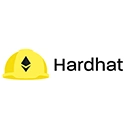Hardhat is a powerful Ethereum development environment that streamlines the process of building, testing, and deploying smart contracts. Here are some best practices to follow when using Hardhat:
1. Setting Up Your Environment
Before you start using Hardhat, ensure that you have Node.js installed on your machine. You can download it from Node.js official website.
To set up Hardhat, create a new directory for your project and run the following command:
npm init -y
npm install --save-dev hardhatAfter installation, you can create a new Hardhat project by running:
npx hardhatThis command will guide you through the setup process.
2. Use Hardhat Network for Local Development
Hardhat comes with a built-in local Ethereum network that allows you to deploy contracts, run tests, and debug your code. To start the Hardhat Network, use:
npx hardhat nodeThis command will start a local Ethereum network on your machine, which you can use for testing your contracts.
3. Write Comprehensive Tests
Testing is crucial in smart contract development. Use Hardhat's testing framework to write unit tests for your contracts. Here’s an example of a simple test:
import { expect } from "chai";
describe("Token Contract", function () {
it("Should return the correct balance", async function () {
const Token = await ethers.getContractFactory("Token");
const token = await Token.deploy();
await token.deployed();
const [owner] = await ethers.getSigners();
expect(await token.balanceOf(owner.address)).to.equal(1000);
});
});4. Optimize Your Contracts
When deploying contracts, consider optimizing them for gas efficiency. You can set optimization settings in the hardhat.config.js file:
module.exports = {
solidity: {
version: "0.8.0",
settings: {
optimizer: {
enabled: true,
runs: 200,
},
},
},
};5. Use Plugins for Extended Functionality
Hardhat supports various plugins that can enhance your development experience. For example, you can use the Hardhat Etherscan plugin to verify your contracts on Etherscan:
npm install --save-dev @nomiclabs/hardhat-etherscanThen, add the plugin to your hardhat.config.js:
require("@nomiclabs/hardhat-etherscan");
module.exports = {
etherscan: {
apiKey: process.env.ETHERSCAN_API_KEY,
},
};6. Use Console Logging for Debugging
For debugging purposes, you can use the Hardhat console to log outputs during your tests:
import "hardhat/console.sol";
contract MyContract {
function myFunction() public {
console.log("This is a debug message");
}
}7. Forking Mainnet for Testing
If you need to test against real-world scenarios, you can fork the Ethereum mainnet:
npx hardhat node --fork https://eth-mainnet.alchemyapi.io/v2/YOUR_API_KEYThis allows you to interact with real contracts and test your code in a realistic environment.
Conclusion
By following these best practices, you can effectively use Hardhat to develop, test, and deploy your Ethereum smart contracts. Always keep your environment updated and explore the extensive documentation available for more advanced features.

